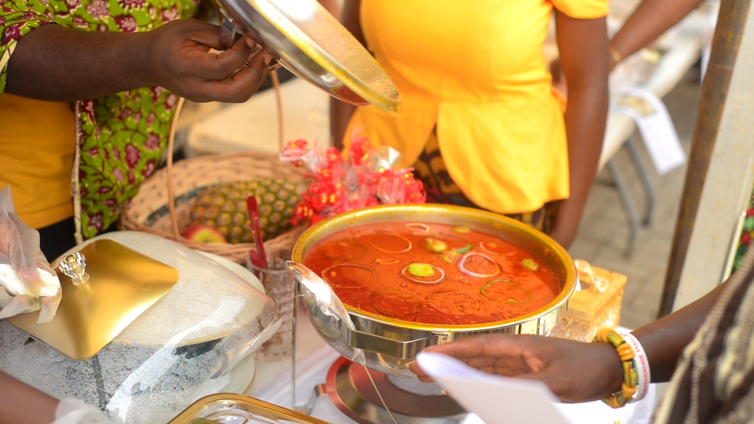Our diet and taste as a people have changed over time and that change is for the worse, says Dr. Abena Tannor, a World Health Organization Consultant.
According to her, there is a lack of knowledge about the nutritional value of local foods and spices, which contributes to people opting for new spice brands that are high in sodium.
“The majority of the foods we consume now are not healthy,” emphasized Dr. Tannor when she joined David Akuetteh for a conversation on local foods as part of the Ghana Month series on Luv Fm.
“We don’t eat to just fill our tummy; we eat for the nutritional benefit of the food… and sometimes we also eat because some of the nutrients help protect us against diseases,” said the Family Physician.

Some local foods that are seldom consumed include Akapitin, Mpapa, Akaw, Apiti, Mpotompoto, Nuhu, Aporonsu, Ofam, Nyentsira, Adibi, Kafa, Fomfom and Apepresan.
“Ofam is highly nutritious because of the ingredients used in its preparation. It is very healthy too,” said Dr. Tannor.
She also spoke about the importance of using palm oil in the preparation of most indigenous foods, as it helps protect against cancers and is also good for the eyes.
“Palm oil has Vitamin A and E and is really good for us. It’s something that we can actually use in preparing a lot of our meals and it’s available locally,” she said.
“The leaves used in packaging waakye adds flavor to the waakye and also, it’s medicinal. It reduces cholesterol in the blood.
“Cooking cocoyam without peeling is very nutritious. It is even easy to cook and that process helps to keep some of the nutrients in the cocoyam,” she said.
She believes the media has a great role to play in encouraging the populace to include indigenous food in their menu.
“These cooking competitions shown on TV could dedicate some time for Ghanaian meals,” she admonished, adding that TV commercials related to food can inculcate aspects on indigenous ingredients to wet appetite for local cuisine.
She also said innovative ways of eating Ghanaian meals can be explored by reducing the time of preparation and also enhancing their preservation.
“We must also look at the prices of the local foods and ingredients. Some of them are expensive”.
Dr. Tannor, however, says it is better to spend time cooking and eating good healthy local delicacies than to spend less time eating junk food that has adverse health implications.
Latest Stories
-
Paris 2024: Opening ceremony showcases grandiose celebration of French culture and diversity
3 hours -
Spectacular photos from the Paris 2024 opening ceremony
4 hours -
How decline of Indian vultures led to 500,000 human deaths
4 hours -
Paris 2024: Ghana rocks ‘fabulous fugu’ at olympics opening ceremony
5 hours -
Trust Hospital faces financial strain with rising debt levels – Auditor-General’s report
5 hours -
Electrochem lease: Allocate portions of land to Songor people – Resident demand
5 hours -
82 widows receive financial aid from Chayil Foundation
5 hours -
The silent struggles: Female journalists grapple with Ghana’s high cost of living
5 hours -
BoG yet to make any payment to Service Ghana Auto Group
6 hours -
‘Crushed Young’: The Multimedia Group, JL Properties surprise accident victim’s family with fully-furnished apartment
6 hours -
Asante Kotoko needs structure that would outlive any administration – Opoku Nti
7 hours -
JoyNews exposé on Customs officials demanding bribes airs on July 29
7 hours -
JoyNews Impact Maker Awardee ships first consignment of honey from Kwahu Afram Plains
8 hours -
Joint committee under fire over report on salt mining lease granted Electrochem
8 hours -
Life Lounge with Edem Knight-Tay: Don’t be beaten the third time
9 hours

